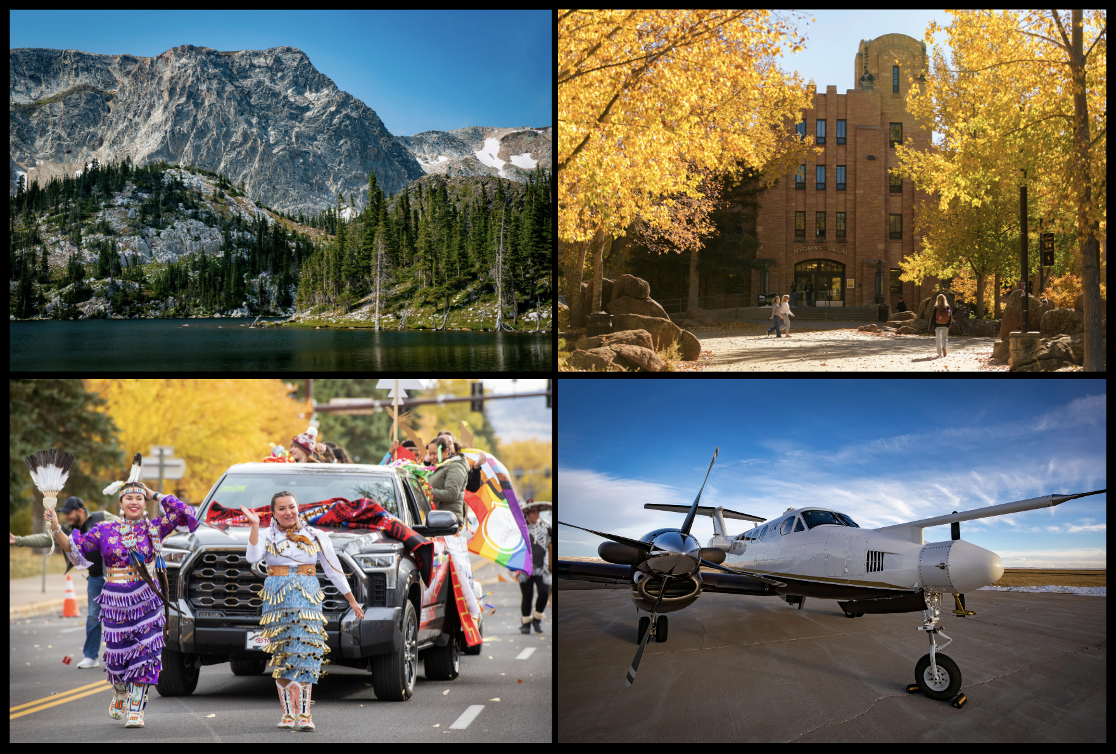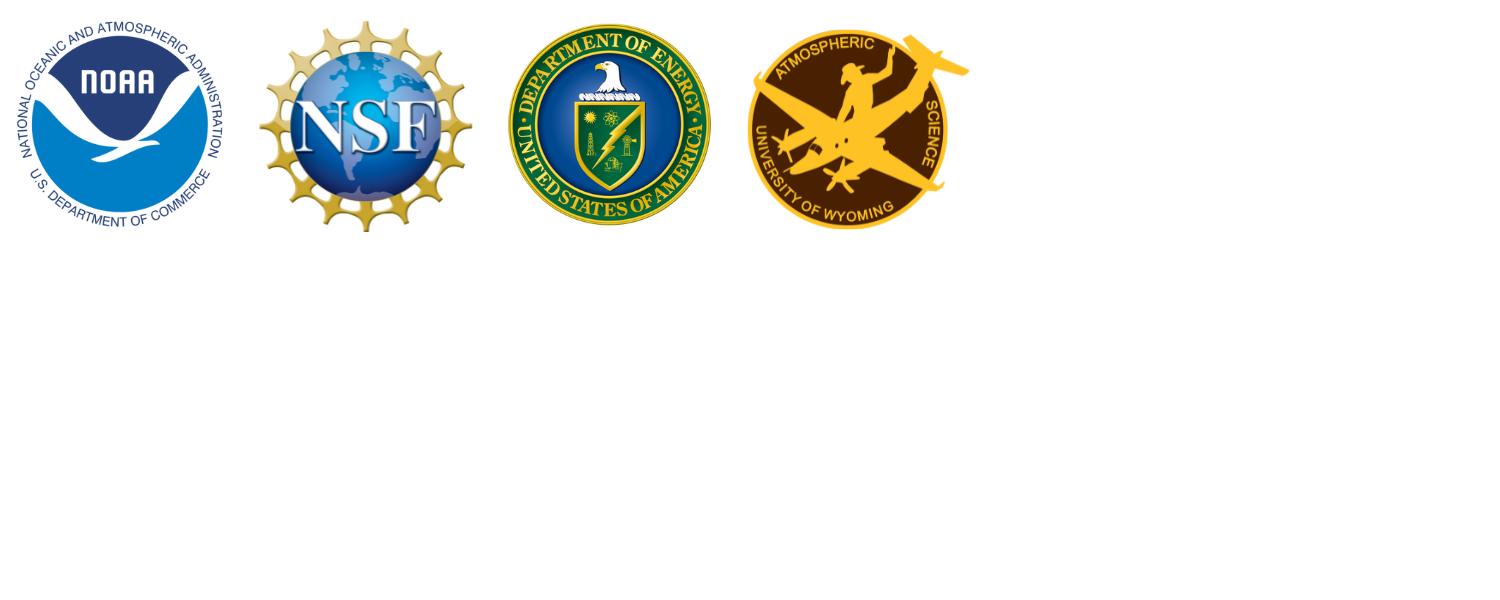Micro2Macro: Origins of Climate Change Uncertainty Workshop
Microphysical precipitation, cloud, and aerosol processes are a leading source of uncertainty in climate projections due to their effects on top of atmosphere radiation. Most of our uncertainty in historical anthropogenic radiative forcing is due to uncertainty in anthropogenic aerosol indirect forcing. This contributes to substantial uncertainty in the degree of climate sensitivity that can be inferred from the historical record of surface air temperature, and thus causes uncertainty in future climate projections. Similarly, global climate feedback uncertainty is mostly due to uncertainty in cloud feedback. Ultimately, clouds, precipitation, convection, and aerosols are dependent on microscale processes responding to large-scale environmental changes. The choices we make representing microscale processes with climate model parameterizations also result in substantial feedback and forcing uncertainty in simulations. Next-generation, km-resolution global models will remain challenged to represent such microphysical processes through parameterizations. We urgently need observational and modeling frameworks that target robust quantification and reduction of microphysical uncertainty and how it translates into uncertainty in predictions of macrophysical atmospheric properties and climate change.
Objectives
The Micro2Macro workshop will develop the foundation of a new framework to confront and evaluate climate models using observations to improve our process-based understanding and strategically reduce climate projection uncertainty. The workshop is organized around four driving questions spread over 2.5 days of the meeting:
- What's Wrong with Microphysics in Climate Models?
- Can We Even Observe Microphysics?
- How are Observations Being Used to Improve Models?
- How Can We Plan Future Process Observations to Reduce Climate Change Uncertainty?
- What Do We Do Next?
Within these major topical questions, the Micro2Macro workshop solicits presentations related (but not limited) to topics described in detail on the "Sessions and Topics" page.
Our framework will evaluate multiple microphysical to macrophysical couplings including, but not limited to, a) marine (especially biogenic) aerosol emission control of pre-industrial aerosol loading, and the potential to affect future climate; b) ice formation processes and their impacts on precipitation; c) the microphysical reasons marine cloud feedback dominates overall cloud feedback; d) the way microphysical processes impact the marine atmosphere and ocean to alter cloud regimes and evolution.
Invited Speakers
We are happy to announce the following invited speakers:
Johannes Mülmenstädt (DOE PNNL)
Sylvia Sullivan (University of Arizona)
Nadine Borduas-Dedekind (University of British Columbia)
Christine Chiu (Colorado State University)
Christina McCluskey (NSF NCAR)
Gregory Elsaesser (Columbia University/ NASA GISS) Ken Carslaw (University of Leeds)
Ken Carslaw (University of Leeds)
Alexei Kiselev (Karlsruhe Institute of Technology)
Andrew Gettelman (DOE PNNL)
Target Participants
Attendance is open to all with a target workshop size of 50-80 participants. Participation is sought from throughout the atmospheric sciences, including those with expertise in: aerosol, cloud and precipitation microphysics; radiative transfer; cloud dynamics; ground-based, airborne and remote-sensing observations; aerosol, cloud, and climate modeling and feedback analysis; and machine learning. Attendees across career stages and identities are welcome. Participants will be encouraged to participate in leadership roles such as facilitating workshop discussions.
Workshop Format
The 2.5 day workshop will include plenary sessions with invited and contributed talks, poster sessions, and breakout group discussions. Emphasis will be placed on identifying and refining analysis frameworks that may be a mix of established and novel approaches. Micro2Marco will be a hybrid workshop, with in-person and virtual participation options. Among other activities, a group excursion to the Medicine Bow-Routt National Forest is planned after the workshop.
Outcomes
The workshop will produce a US CLIVAR report highlighting the state of the science, gaps, and recommended next steps including scoping of frameworks for the following purposes:
- Evaluation of model microphysics: This deliverable will seek the development and standardization of model evaluation procedures and data sets to facilitate comparison between in situ observations, remote sensing, and climate models
- Quantification of microphysical remote sensing retrieval uncertainty: This deliverable will develop suggestions for a probabilistic framework to evaluate remote sensing retrievals of microphysical properties that allow a characterization of uncertainty globally, beyond the relatively small set of direct observations
- Identification of laboratory and field observation measurement gaps: This deliverable will identify gaps in current lab, in situ, and ground-based observational capabilities, that are priorities for reducing microphysical process uncertainties, including recommending future field campaigns and identifying needs for enhanced analysis of previous campaigns
- Application of impactful, traceable, and interpretable uses of machine learning and artificial intelligence to enhance the use of observations to better inform microphysics parameterizations in models
Location
Laramie is a small college town home to the University of Wyoming in the central Rocky Mountains, full of outdoor activities with a lively cultural scene. Regular flights are available from Denver International (DEN) to Laramie regional airport (LAR). Laramie is a 2-hour drive from Denver. Additional regional airports include Cheyenne (CYS) and Northern Colorado (FNL), which are 50-minutes and 1.5-hour drives to Laramie. Southern Wyoming in late October is home to crisp weather and fall colors.

Scientific Organizing Committee
Daniel McCoy, University of Wyoming (Co-chair)
Rob Wood, University of Washington (Co-chair)
Susannah Burrows, DOE PNNL
Ann Fridlind, NASA GISS
Adele Igel, University of California, Davis
Coty Jen, Carnegie Mellon University
Leighton Regayre, University of Leeds / UK Met Office
Masanori Saito, University of Wyoming
Duncan Watson-Parris, University of California San Diego
Program Organizing Committee
Alyssa Cannistraci, US CLIVAR
Mike Patterson, US CLIVAR
Jessica Martinez, UCAR CPAESS
Workshop Sponsors


